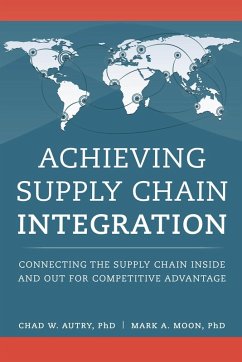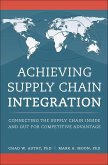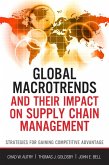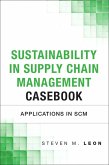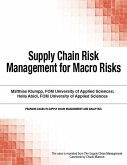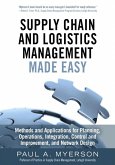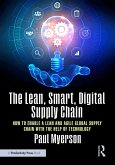New research, practical priorities, actionable solutions
- Master new best practices for integrating demand, supply, and partners worldwide
- Bridge key "integration gaps" to maximize customer value and profit
- Improve performance in areas ranging from resource availability to returns
- From leading supply chain integration experts at the University of Tennessee's Haslam College of Business
In volatile, global environments, only well-integrated organizations can deliver superior customer outcomes and sustained profitability. Supply chain practitioners are on the frontlines of integration: they must bring together functions ranging from sales to logistics and a world of third-party suppliers. Integration is not easy, but proven solutions exist. In Achieving Supply Chain Integration, leading experts reveal what works and how to make it work.
The authors and contributors clarify what supply chain integration really means, and why it's even more crucial than many companies realize. You'll learn how to manage core conflicts that make integration difficult, so you can maximize value to both customers and your organization.
You'll find example-based, research-driven insights for both internal and external integration, addressing issues ranging from culture to financial metrics. The authors share practical guidance on everything from building more innovative partner relationships to avoiding raw material shortages.
Whatever your supply chain or operations responsibilities, you need to integrate more effectively, and this guide will help you do it.
Supply chain integration can ensure a smoother, more efficient flow of products, and enable access to third-party resources and capabilities that would be costly or impossible to build internally. However, successful integration has proven challenging, especially as supply chains evolve to encompass even more external partners.
Achieving Supply Chain Integration shows how to prioritize which processes and functions to integrate and select integration strategies likely to deliver the greatest performance benefits. Drawing on actual successes and failures, UT's researchers illuminate best practices and common mistakes. They present proven approaches to integrating sales, marketing, core supply chain functions such as procurement and logistics, and widely diverse partner relationships.
Whether you're a practitioner or student, this guide will help you approach integration projects with "eyes open"-so you can mitigate risks and maximize value.
- Understanding what integration is and isn't, and why it matters so much
- Bridging the integration gap to maximize value creation
- Fully leveraging information in internal and external integration
- Driving more value by integrating purchasing and logistics
- Aligning market, environmental, social, and political strategies
- Achieving deeper demand/supply integration
- Reducing product returns through better internal integration
- Building more innovative, collaborative supplier relationships
Dieser Download kann aus rechtlichen Gründen nur mit Rechnungsadresse in A, B, BG, CY, CZ, D, DK, EW, E, FIN, F, GR, HR, H, IRL, I, LT, L, LR, M, NL, PL, P, R, S, SLO, SK ausgeliefert werden.
Hinweis: Dieser Artikel kann nur an eine deutsche Lieferadresse ausgeliefert werden.

